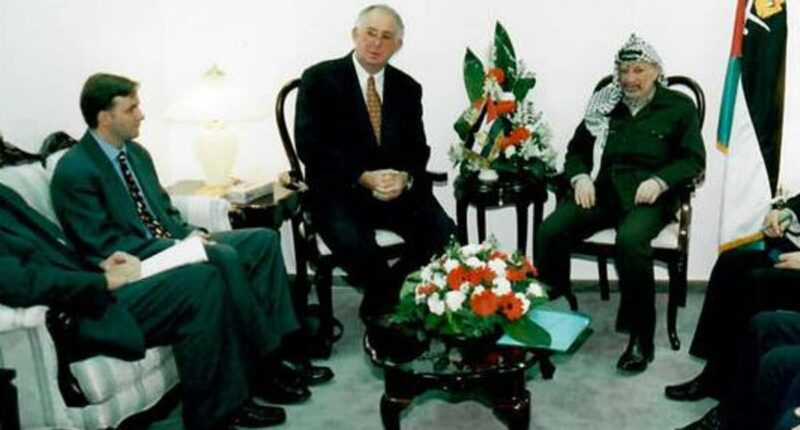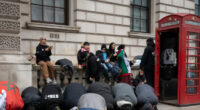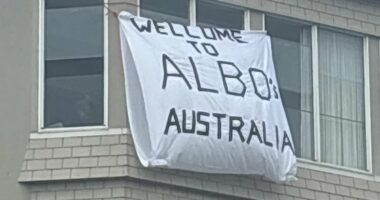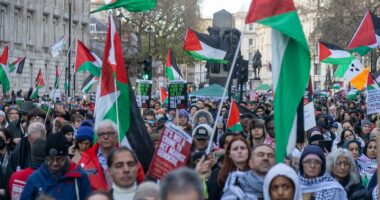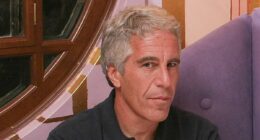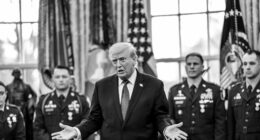Share this @internewscast.com
Anthony Albanese didn’t always speak like a diplomat.
As a young MP he led protests, co-founded the Parliamentary Friends of Palestine, visited Gaza camps and accused Israel in Parliament of overreacting to teenage stone-throwers with grenades, tanks and aerial firepower.
In 1998, he even sat down and met, with then-Liberal MP Joe Hockey, the Palestinian activist-turned-president Yasser Arafat.
Today, the Prime Minister operates in a different mode: measured, cautious and concerned with at least the appearance of balance.
He talks of ‘humanitarian pauses’, supports a two-state solution and frames discourse around Israel’s security and Palestinian aspirations in the same sentence.
That shift was deliberate. By 2011 he was criticising council boycotts of Israel as counterproductive.
As he rose through Labor’s ranks, his rhetoric softened, but only publicly.
Behind the scenes, colleagues know Albo remains a firebrand when it comes to Palestine and Israel’s treatment of Palestinians.
But Albanese’s past as an activist isn’t without criticism, particularly when examined through a more mature and global lens.

This extraordinary photo – taken by the late former Palestinian ambassador to Australia – shows a young Anthony Albanese meeting with Yasser Arafat, the late president of the Palestinian Authority, during a delegation to the Middle East in 1998
At times, his early focus on Israel-Palestine appeared ideologically selective, condemning Israel fiercely while giving far worse human rights abuses around the world a leave pass.
China’s repression of Uyghurs, Syria’s war crimes, or Iran’s theocratic brutality rarely drew the same passionate parliamentary speeches or solidarity tours.
There’s also a question of political convenience. His alignment with the Palestinian cause dovetailed neatly with the values of Labor’s inner-city progressive base, a cohort that helped consolidate Albo’s factional power.
The line between moral conviction and political calculation was not always clear.
His speeches from the late 90s and early 2000s often lacked diplomatic nuance.
They presented the situation in Israel and Palestine in stark binaries, oppressed versus oppressor, with little acknowledgment of internal dysfunction within the Palestinian Authority, the regional threats facing Israel, or the moral complexity inherent in protracted conflict.
And while Albo’s tone has since evolved, the legacy of his earlier rhetoric lingers. For many in the Jewish-Australian community, memories of his past statements still shape perceptions today, creating a deficit of trust that symbolic gestures alone can’t repair.
Now, the old Albanese (hardline and outspoken) may be resurfacing in how he shapes national foreign policy towards Israel and Palestine.

The prime minister has long highlighted parts of his past – such as being raised by a single mother in public housing – but is much quieter about his history of pro-Palestinian activism, despite the issue’s prominence. Above, a young Mr Albanese addresses a pro-Palestine rally

The full version of this photo shows former treasurer and one-time Australian ambassador to the US Joe Hockey (on far right) also present during the meeting
Internationally, Western nations are starting to shift positions: France has recognised Palestine, the UK and Canada are preparing to do the same.
Labor’s party platform endorses recognition. Jim Chalmers says it is a case of ‘when, not if’.
Albo has tried to frame any recognition as conditional. But will he stick to that if time passes and conditions remain unmet?
The PM wants recognition to happen and may reach a point where he drops conditions in the name of expediency.
Crucially, the Trump administration has emphasised point blank that recognition can only be considered following the remaining hostages being released.
Under US policy, recognition before all hostages are freed would be seen as rewarding Hamas, and would complicate broader strategic diplomacy in the Middle East.
Albanese is ready to move, but there are few signs the remaining 50 hostages are about to be let go. A split with Washington appears increasingly on the cards.
Meanwhile, the PM has made symbolic gestures to reassure the Jewish community at home, increasing funding for Jewish school security.
But moving to recognise Palestine before all the hostages are freed could be politically risky at home.
Islamic and progressive communities would view recognition as overdue leadership, but Jewish-Australians overwhelmingly would not.
They are more likely to see it as premature, and the Opposition would certainly raise the political stakes in a bid to ensure the mainstream agrees.
Albanese’s activist instincts once shaped his politics. Now they are hidden behind diplomatic wording.
The real question is: which version of Albo will prevail? The old political combatant who demanded justice?
Or the pragmatic leader shaped by the compromises of the corridors of power?
